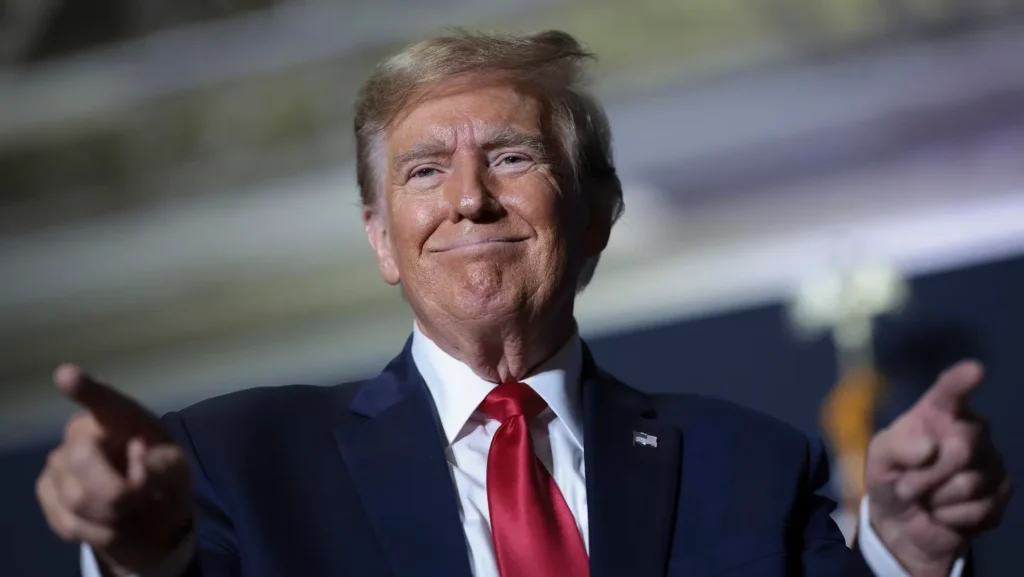Mar 4, 2024,10:02am EST
Former President Donald Trump will not face disqualification from Colorado’s presidential ballot under the 14th Amendment, as ruled by the Supreme Court on Monday. The decision marks the end of critics’ legal attempts to remove Trump from the ballot over allegations of being an “insurrectionist,” with the justices affirming that states lack the authority to unilaterally exclude him.
KEY FACTS:
- In a unanimous opinion, the court overturned the Colorado ruling, emphasizing that “the Constitution assigns to Congress, rather than the States, the responsibility for enforcing [the 14th Amendment] against federal officeholders and candidates.”
- Trump petitioned the U.S. Supreme Court to reverse the Colorado Supreme Court’s decision, which disqualified him from the state’s ballot under section three of the 14th Amendment.
- Colorado’s action was the first of its kind, with subsequent lawsuits emerging in other states like Maine and Illinois, but the Supreme Court’s ruling invalidates those cases, underscoring that states cannot unilaterally remove federal candidates from the ballot.
- Justices Sonia Sotomayor, Elena Kagan, and Ketanji Brown Jackson, while concurring with the majority, expressed concerns about creating a “chaotic state-by-state patchwork” and disputed the notion that Congress must pass specific legislation to disqualify officeholders.
- During oral arguments in February, the justices hinted at retaining Trump on the ballot, signaling skepticism about states’ authority to disqualify him.
Trump lauded the court’s decision as a “BIG WIN FOR AMERICA!!!” on Truth Social.
CRUCIAL QUOTE: “We conclude that States may disqualify persons holding or attempting to hold state office… But States have no power under the Constitution to enforce Section 3 with respect to federal offices, especially the Presidency.”
TANGENT: The Supreme Court is also considering another Trump-related dispute regarding his federal criminal case over attempts to overturn the 2020 election. Trump asserts “absolute immunity” from prosecution for actions taken while in office, leading to a pause in his trial until the court rules on the matter.
BIG NUMBER: 35 states saw lawsuits challenging Trump’s candidacy under the 14th Amendment, reflecting widespread legal scrutiny of his eligibility for office.
KEY BACKGROUND: Section three of the 14th Amendment, originally enacted after the Civil War, gained renewed attention post-January 6 Capitol riot. Left-leaning groups used it to target participants in the insurrection, with lawsuits also filed against other candidates like Rep. Marjorie Taylor Greene and former Rep. Madison Cawthorn. The focus on Trump intensified as prominent legal scholars endorsed theories for his removal, culminating in Colorado’s ruling, which followed earlier court victories for Trump in states like Minnesota and Michigan. The Supreme Court’s intervention was widely anticipated given the significance of the issue.

